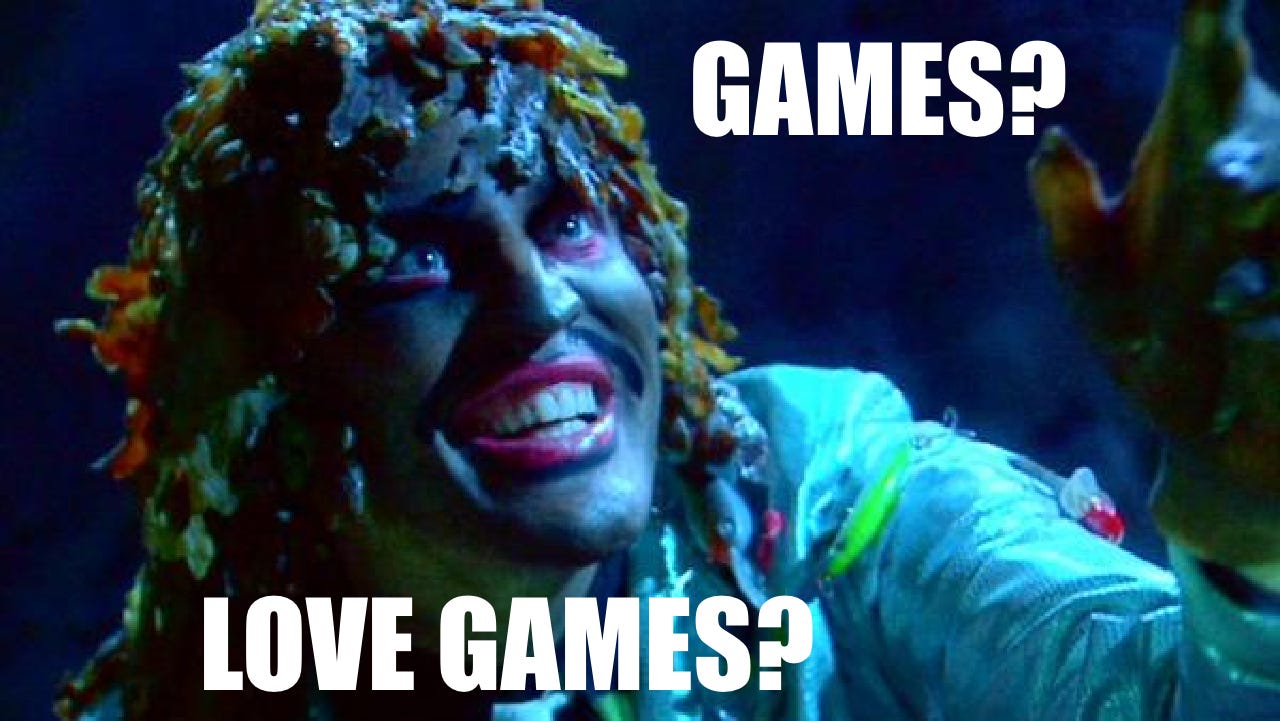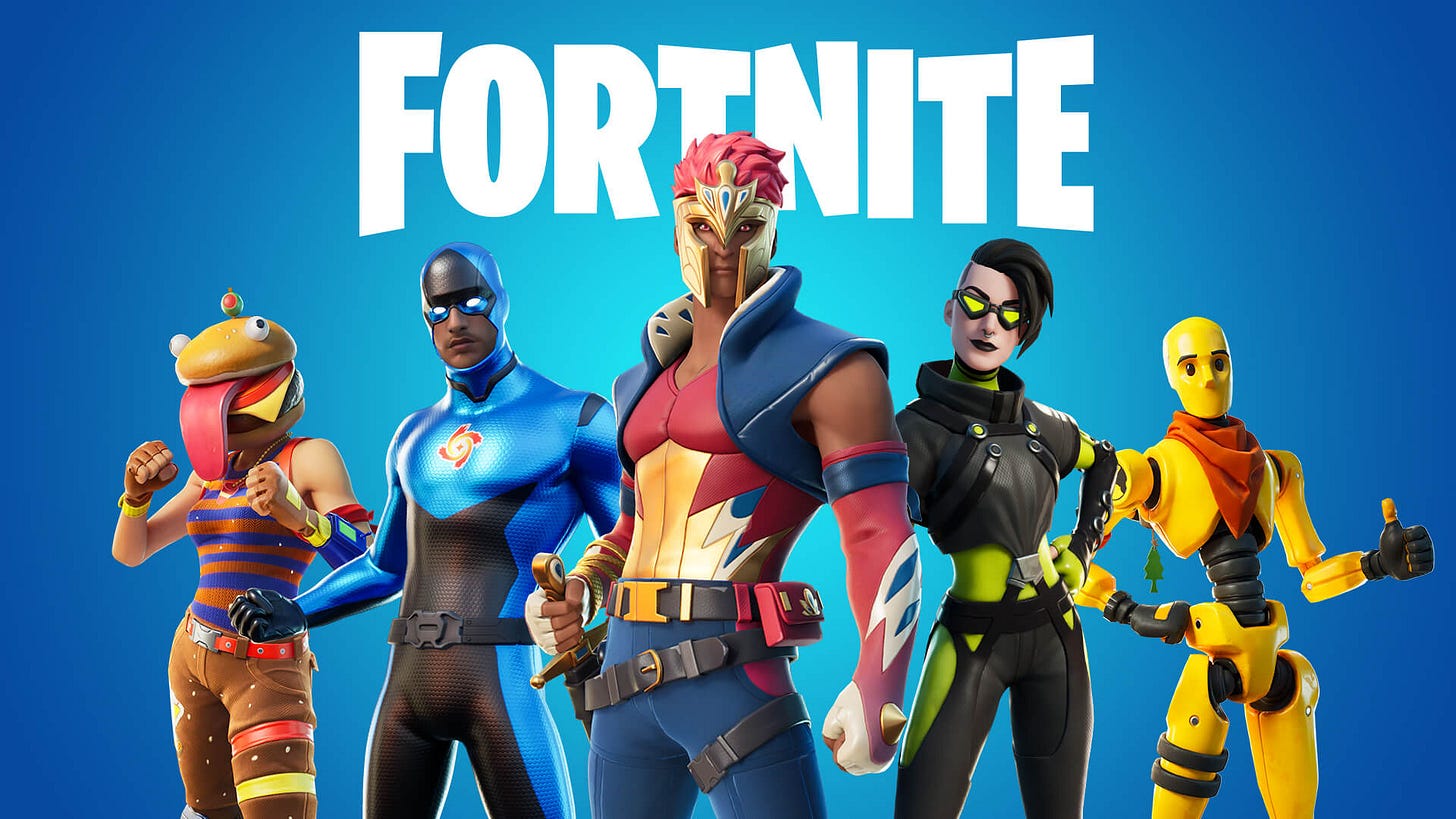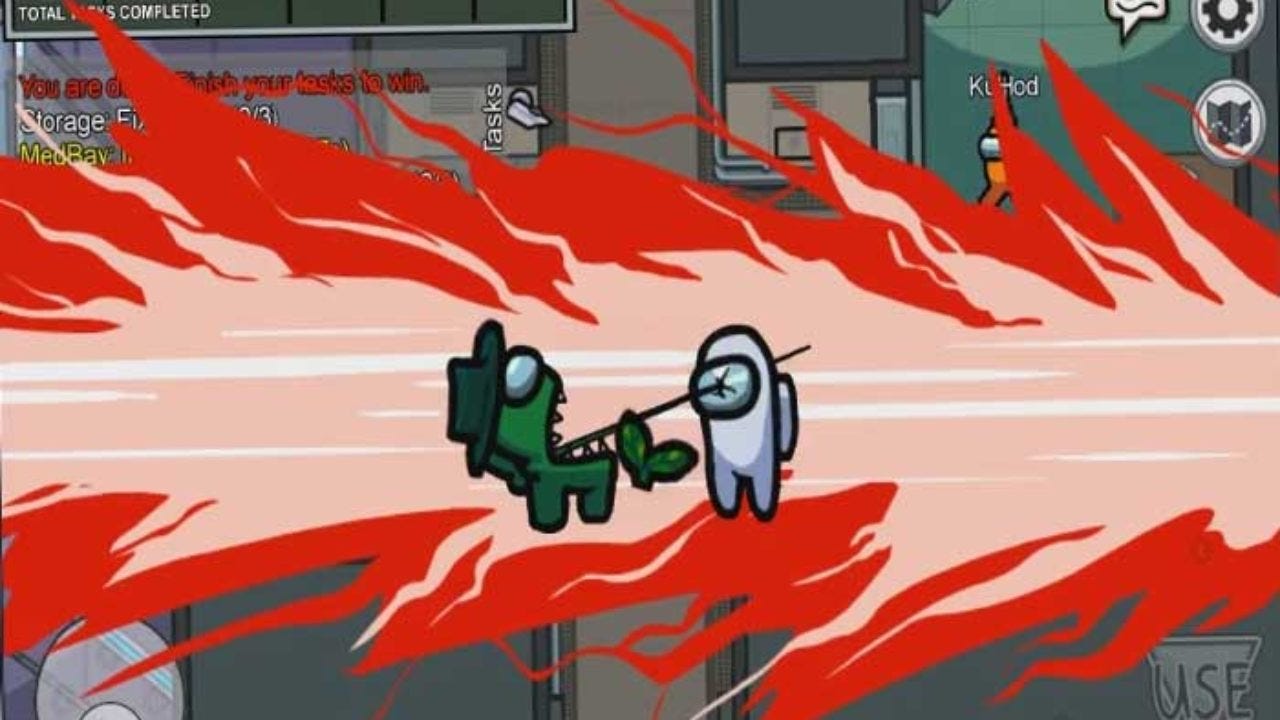We're playing those mind games together. - John Lennon
People have been playing games since the beginning of humanity. Whether they were multiplayer board games in ancient Mesopotamia or solo dice games in the Roman Empire, we’ve filled the time not working, eating, fighting, or sleeping with play. Even though games have been a common thread throughout history, things really changed in 1972. For the first time, a virtual game took the world by storm. While I’ll spare you the history of video gaming, Pong kicked off a revolution in how we thought about play.
Since the invention of Pong, game developers have been pushing the limits of technical innovation for the rest of the tech industry. Rendering engines like Unreal are now used in popular movies and TV shows like The Mandalorian. What started as a way to have more life-like gameplay has become so realistic that we can now use it alongside real-life actors for special effects. Advances in GPU technology led by a push for better gaming experiences forged the path for the crypto / web3 explosion over the past 10 years. The same GPUs are also now being used for highly advanced machine learning models in IoT devices and industrial systems. Hardware (and software) that used to only be available in the most expensive, custom-built gaming rigs are now standard on any new MacBook.
The last 50 years of gaming have fundamentally shifted the way we interact with technology and the next 50 will bring about even more change. Here are some of the companies and products pushing new innovation forward, especially in the ecosystem around gaming.
play to earn
If GPUs and rendering were the hallmarks of gaming innovation in the last two decades, the financialization of gaming will be the focus of the next two. Whether selling mods, buying skins, or exchanging high-XP accounts, there has been a financial ecosystem around games for years. Until recently, this ecosystem had been almost completely amateur though, with a few keys players attempting to professionalize it with marketplaces here and there. This is all changing.
The first major change was the move toward free-to-play games by major developers like Epic Games. Instead of charging $69 for a new game, Epic launched Fortnite free of charge for anyone to play. In doing so, they traded traditional one-and-done sales revenue for in-game purchase revenue. Other apps had been doing this before (especially in the mobile gaming world) but Fortnite was the first to become a global titan using this strategy. This opened up Fortnite to a huge part of the global population and changed the way many future games are released. Comparing this to subscription models in other areas of tech, imagine exchanging one-off revenue from a small group of people for recurring revenue from the entire world. While is a slight exaggeration, the business models for game developers are forever changed from the shift to free-to-play.
Alongside the free-to-play movement, the rise of esports compounded the professionalization of gaming. In the past 10 years alone, esports have morphed from a cottage industry to a global phenomenon growing quickly year-over-year. Teams like 100 Thieves are building billion-dollar brands extending outside the competitions themselves, universities are giving out esports scholarships, billionaires are buying professional teams, and millions are tuning in to watch international gameplay. Professional gamers like Ninja are making bank streaming on Twitch and national sponsorship deals with top companies like DoorDash are becoming commonplace. In just a short time, gaming turned from a fun hobby to a real money-making career path.
This has brought about new businesses to support gamers. Metafy, for example, provides a marketplace matching amateurs with pro instructors to improve their gameplay. Just like LeBron James has a personal trainer, the top esports pros will use their earnings to level up and earn more. As esports continues its rise, there will only be more services like Metafy that spring up to support these new professionals.
With Gen Z growing up with gaming as a legitimate career option, play-to-earn games have added even more nuance into the financial incentives of gameplay. While esports competitors may be compared to players in the NFL or NBA, play-to-earn games are more like a typical 9-to-5 job. Play-to-earn games specifically incentivize players (most commonly through crypto) for their gameplay.
CryptoKitties was the first mainstream introduction to this concept. The premise was simple: buy a few Kitties, breed your Kitties with the best traits, and sell the baby Kitties. It took the concept of games like Neopets and added a financial component. The craze around CryptoKitties was huge and people were making tens of thousands (sometimes more) on breeding these cute cartoons. In fact, many argue it helped lead to the meteoric rise in NFTs along with CryptoPunks. By introducing the gaming world to real, monetary rewards for play, CryptoKitties turned crypto gamers into crypto traders.
NBA Top Shot was the next logical step after the success of CryptoKitties. Dapper Labs (the creators of CryptoKitties) launched Top Shot in partnership with the NBA to bring playing card collections on-chain. Like CryptoKitties before it, Top Shot allowed players to open a deck of cards with pseudo-randomly assigned traits that had varying monetary values. If you pulled a legendary Giannis, you were guaranteed to make thousands from your $9 purchase. Fans are now playing and earning in their own “side quest” while they follow along with their favorite stars playing the game they love to watch. Associating a play-to-earn game with an IRL game (like basketball in this case), is something we’re going to see popping up more and more in the coming years.
With all their positives, the downside of CryptoKitties and NBA Top Shot is their gameplay. When it comes down to it, they are a pure marketplace buying and selling varying levels of rare merchandise. Axie Infinity changes this, introducing a much more advanced gameplay to the play-to-earn space. In the game, players acquire Axies and battle them to earn tokens. But this is just the beginning. Players can also buy land in-game and use it to farm resources to help level up their Axies. They can adventure within the world to train their Axie and improve their ability to battle. It’s not hard to predict what new opportunities for professionalization would come from this type of gameplay. There are hundred of people playing hours a day to level up Axies and sell them to people who don’t want to take the time to train their own. There are people in the Philippines who are earning a full-time living farming Axie resources. What appears on the outside to be a fun game similar to Pokémon turns out to be a full financial ecosystem.
While Axie Infinity isn’t the only play-to-earn game with advanced gameplay out there, it’s one of the biggest. And it’s the perfect example of where the financial side of gaming is moving. This space will only continue to grow as more crypto wealth flows into games in the ecosystem. If nothing else, these games have further proven that having “Gamer” as your occupation on your next lease application may not seem so wild.
play to connect
Although the meat of this article is about the financialization and professionalization of gaming, I’d be remiss not to call out the need for gaming more than ever with the shift to distributed work. With coworkers spending most of their time talking on Zoom or in Slack, there’s a void of person-to-person engagement that can quickly lead to a lack of culture. Playing games together online combine serendipity and fun to help fill that void.
Startups like Campfire and Thursday are specifically targeting workplaces by giving them a custom gaming experience for their employees. On Thursday, they combine a social video lounge with activities like “2 truths and a lie” and “would you rather” to build team bonding. Campfire immerses users in a virtual world with games and activities. These platforms are a bit heavier of a lift since they require users to switch platforms (instead of just playing a game together on Zoom), but they will become more and more prevalent as people yearn for connection when remote.
Our team at Macro played games with the entire team every Wednesday. We made sure this was during working hours so it was a priority and didn’t force anyone to spend personal time trying to “bond”. Over the year we did this, we rotated through quite a few games but two stood above the crowd.
Among Us was great because it allowed us to work on strategy together while also having a genuinely great time. I’m not going to encourage lying to coworkers (looking at you Nitin) but the game was an amazing way of teaching the team to collaborate, especially with new teammates. Skribbl was another fan favorite, mainly because it helped us to learn about each other and laugh together. We quickly found out who the best artists were and how to best get the team to guess the word at play.
The biggest learning we had with our gametime at Macro was not to overthink things. So many people think that games at work have to be work-related. This is totally counterproductive from what we experienced. There are inherent lessons and benefits from playing any game together, as long as the fun element is there. Otherwise, no one will be engaged and the value drastically diminishes. By using non-work games, the connections we built over time grew immensely and led our team to be one of the best I’ve ever worked on.
play to play
Gaming has always brought about innovation in tech and it’s going to continue doing so into the future. Whether it’s play-to-earn games, the rise of esports, or games connecting coworkers, the business of gaming is morphing into something impressive in scale and increasingly lucrative. While we will see countless new products jumping onto this trend, we should also keep in mind that games have one fundamental value: fun. People will and should continue to play just for the sake of playing and that’s what matters most in a world with so many serious things going on. Play on!
As always, if you’re a founder working on a fun product or know of any awesome companies that fit into this category, send them my way at hi@superduperserious.com. I’d love to meet and include them in a future post!






